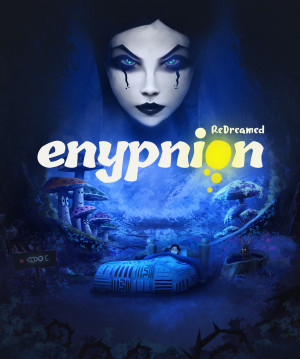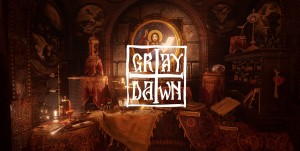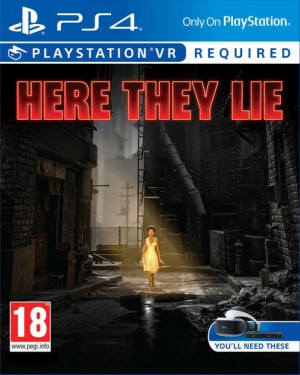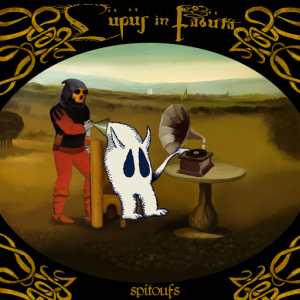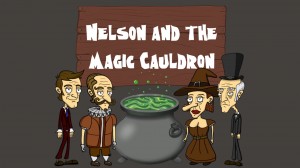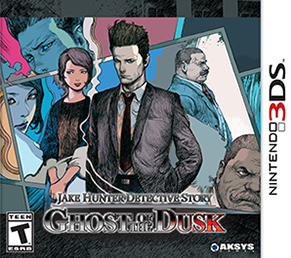Review for Lucius III page 2
Video game sequels are an odd duck. In other media, sequels are often lackluster imitations of what came before, lacking that little something that gave the original its spark. Yet game development is an inherently iterative process, and sequels can function as a way for creators to keep refining what made their first game tick, expanding on its strengths, course-correcting its weaknesses, and delivering a bigger, better version of what came before. A game sequel is usually something to get excited about.
Usually.
When Lucius came out in 2012, it felt like a textbook case of a flawed but promising debut from developer Shiver Games. It told the story of a child born to a U.S. Senator in the 1960s (6/6/66 to be exact) who discovers on his sixth birthday that he is, in fact, the spawn of Satan. Literally. And, as hellspawn are wont to do, he is compelled to commit mass murder through the family mansion, wreaking havoc and harvesting souls for Big Papa himself.
That first game was pretty good! It was occasionally very frustrating, and certainly lacking in polish, but it told a compelling story of Lucius’s family’s descent into madness and depression as they came to realize that the rash of deaths on the grounds were not a series of unfortunate accidents after all. The puzzles were mostly logical and set within the detailed and self-contained setting of Dante Manor. There was also a wicked sense of humor that pervaded the action, as even though the game is not a comedy, there’s a sense it isn’t taking itself too seriously either.
Lucius II followed in 2015, and it seemed like the perfect chance for Shiver to make good on the potential of their concept. The sequel followed immediately after the events of the first game, with the young protagonist ending up in a psychiatric hospital. It promised a more open-ended design, allowing players to kill according to their own wicked designs rather than having to solve linear puzzles. Unfortunately, it failed in every regard. The story was nonsensical, the setting was less interesting, and the freedom it promised turned out to be a paper-thin set of reusable items scattered willy-nilly around the environment. The AI was horrifically broken, bugs ran rampant, and the game was a repetitive slog. It still holds the dubious honor of being the lowest score I’ve ever awarded a game.
But hey, mistakes happen, so when Lucius III arrived, I went in hoping for the best. I would really love to see a Lucius game that makes good on its twisted core conceit, and after the massive disappointment of the previous installment, the only possible direction was up, right?
Well, yes. Lucius III is a better game than its predecessor. Unfortunately, that’s not saying much.
The third game in the trilogy follows moments after the ending of its predecessor, with Lucius returning to his hometown after having escaped the asylum. Accompanied by Detective McGuffin, who spent the first game investigating the murders but has inexplicably since decided to aid the boy, Lucius sets about breaking the seven seals on a scroll that, when opened, should bring about the prophesied Hell on Earth, freeing his father to rule both realms and take the fight to God.
So how does a six-year-old child go about fulfilling an ancient Biblical prophecy in a small town in the United States? Wanton murder, of course! Each of the seals is accompanied by a vague riddle describing an archetypal figure that must be sacrificed. Lucius and McGuffin need to find out who in town matches those descriptions and then do what Lucius does best.
The first problem is that the story does not do service to the setup. The connections between the seals and the people you kill are beyond tenuous. I often struggled to see how Lucius and McGuffin had deduced that this or that person was their next target, except that they said so. Lucius’s character is less interesting the more screen time he’s given. In the first game he was simply a force of nature… driven to kill because, well, that’s what the child of Satan does. It worked because it was simple and creepy. Here he’s caught up in grand prophecies and the battle between Heaven and Hell and, as a mute, he has nothing interesting to do but glare menacingly as the grown-ups talk.
Most other characters exist only to spout a few lines taken from (better) films before being slaughtered. I mean it: one person is a line-for-line rip-off of Norman Bates from Psycho, while another is an entirely out of place Napoleon Dynamite homage; even the fortune teller machine from Big makes an appearance! There are other characters introduced early on as seemingly important but never reappear, entire plot lines that are dropped without resolution, and major motivations are never convincingly explained if they are even hinted at – McGuffin has apparently decided to assist Lucius in committing mass murder and bringing an end to all life on Earth because… he kind of looks like McGuffin’s deceased son? The entire affair feels alternately rushed and painfully dragged-out, and there is clear evidence that large chunks of the story were excised without doing much to patch over the holes left over.
For example, the game hints throughout that a Halloween party is coming up at McGuffin’s neighbor’s house. You’re introduced to his neighbors and their jerk kids. You have a Halloween costume amongst your clothing options. Other characters comment frequently on the upcoming party. And you can explore the neighbor’s house, which is strewn with hints as to where that particular plot thread is going (spoiler: think pedophilia… it’s not subtle). There are even forebodingly loose wood planks in the house that prompt you to come back when you have a tool to pry them up. And yet… the party never happens, you never wear the costume, you never pry up the boards, none of those plot lines are ever resolved. There are several other instances of the game telling you that something will be relevant later, only to never come back up, even optionally, before instead rocketing toward a rushed conclusion, with the last few chapters somehow feeling even more disjointed and haphazard than the earlier ones.
One of the biggest changes to the formula in Lucius III is the move to an open-world location of sorts. The town of Winter Hill is much larger than the setting of either previous game, with various points of interest dotting the map, including the houses of local residents, the church, diner, police station, etc. In theory this should provide a great opportunity to expand on the Lucius formula, whether by showing how the town reacts to the mayhem you’ve wrought, or allowing more freedom in how you pull off kills, or really anything. In practice, however, the game is deeply linear, and the increased size of the world only serves to force you to travel through lengthy tracts of empty road between locations. There is one nifty exception: at a certain point in the story, the town undergoes a dramatic change in atmosphere from its otherwise idyllic coastal peacefulness and it effectively conveys that bad stuff has and is about to go down.
The game does include a fast travel option, as Lucius can morph into the form of a crow and fly quickly around town – a cool concept, but one to which the game never quite commits. Rather, you can simply pull up the map and click on the icon for a previously-visited area to instantly teleport there. Since the crow form has no other function, once you’ve used it to visit a place for the first time there’s no need to use it ever again. Lucius still has a few other powers up his sleeve, namely pyrokinesis, telekinesis, and mind control, though you’re only able to use them in specified places and the game automatically uses the required power when you interact with highlighted spots. So while it’s fun to set things on fire and use your mind to topple giant metal crosses, there’s no experimentation, just a matter of clicking on something and being told ‘oh, you’re using a power here now.’
The murders themselves form the core of the experience, with most of the seven chapters following the same pattern of figuring out who needs to die, determining how to kill them, clearing the vicinity of any holy objects that might impede your powers, and then letting rip. In the first game this often led to a guessing game where you had to divine what the developers were thinking from vague or nonexistent clues. Lucius III teeters between that extreme and its opposite. The pace at which Lucius updates his notebook with hints and directions is inconsistent, and some chapters tell you precisely what to do, in exacting order, while others give little guidance at all, leaving you to flail about randomly until you stumble onto the solution.
Paired with finicky, inconsistent third-person controls (either mouse and keyboard or gamepad) and a host of bugs – usable objects not highlighting, mismatched closed captions, interiors of buildings not loading, getting stuck in the world geometry, and cutscenes and level progression failing to trigger – you have a game that feels like a chore to play, without much sense of discovery, accomplishment, or drama, but with plenty of tedium, frustration, and annoyance.
While previous games often had you setting up elaborate traps for your victims, here as often as not the culmination of a chapter is simply a cinematic where Lucius taps into his dark power and makes the character explode or stabs them or something. Often the lead-up involves some light puzzle-solving – distracting a character so that you can clear his office of holy symbols, or deciphering a Latin phrase in order to access a secret room – but solving these are generally just a matter of scouring the environment for the obviously correct item to use in the situation and rarely require much creative thinking.
At least one character’s death trips right past “subversive” and into downright offensive territory, implying that a character turned to Satan worship because of his homosexual tendencies and ending with his murder explicitly invoking Ku Klux Klan lynch mobs. Perhaps the game’s Finnish developers aren’t aware of how potent those images are even (especially?) in modern American culture, but that scene has none of the goofy sadistic humor that the best moments in the series possess, but is instead deeply ugly and off-putting. I’m actually glad that the pedophilia storyline never comes to fruition, because I have strong doubts that the game would have handled it with any sort of sensitivity. There’s a difference between being dark and being tasteless, and Lucius doesn’t always stay on the right side of that line.
At first glance the graphics seem to be a marginal improvement over the earlier games, with the larger scope of the world, better lighting, and a varied cast of characters. But it doesn’t take long before the flaws take center stage. Lighting flickers in and out as you move through the environment, animations are stilted and robotic, characters show little to no emotional range (which makes sense for Lucius, but not for everyone else), and so on. Fire effects look quite nice, at least, and there are some wonderfully imaginative moments of horrific gore.
Audio doesn’t fare much better, with serviceable but unremarkable sound effects. Voice acting has never been the series’ strong suit, and that doesn’t change here. One bright spot in all of this is the soundtrack, which is appropriately ominous, full of low orchestral tones, eerie piano, and moody distorted guitar. The track that often plays over Lucius’s murder scenes is particularly diabolical.
Sadly, some decent music isn’t enough to save an otherwise totally underwhelming, frustrating 5-8 hour game. A story that see-saws between cliché and nonsense, a presentation full of bizarre pacing issues and bugs, and a general lack of interesting places to go, things to do, or people to talk to (aka kill) leads to a game that is very hard to recommend. I take little joy in being so harsh, and I can still envision a Lucius adventure that delivers on the macabre, transgressive delight of its core concept, but folks, this ain’t it. My advice: stock up on crucifixes and holy water to ward off any temptation to kill time with Lucius III.





